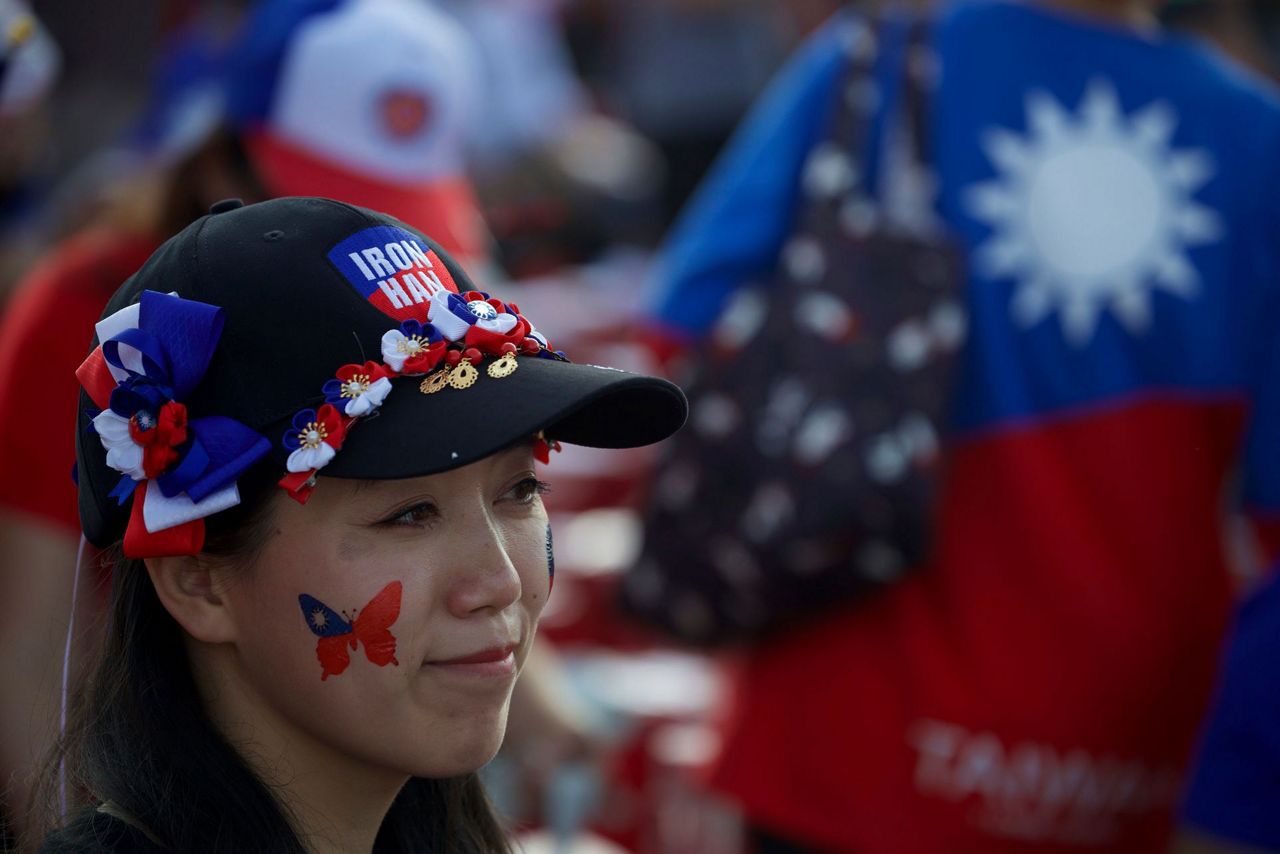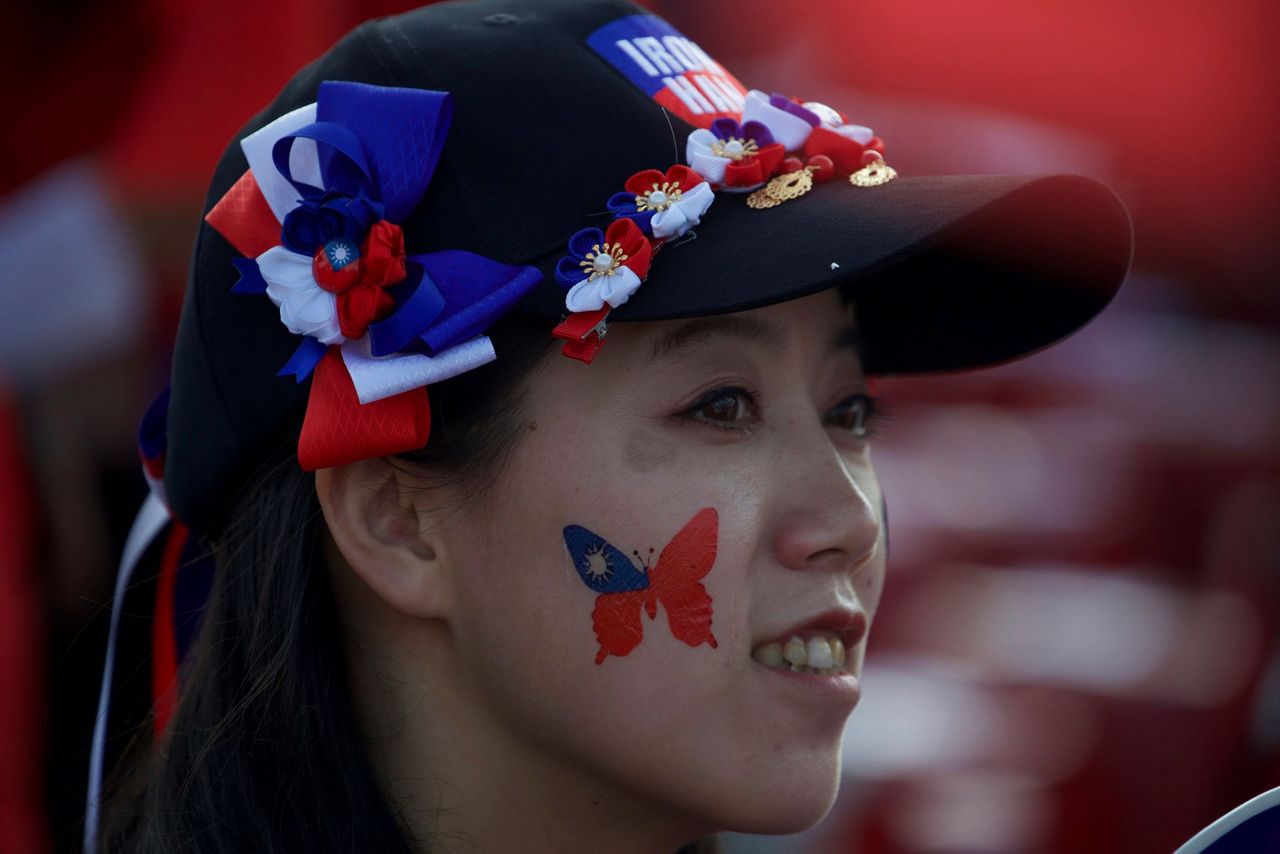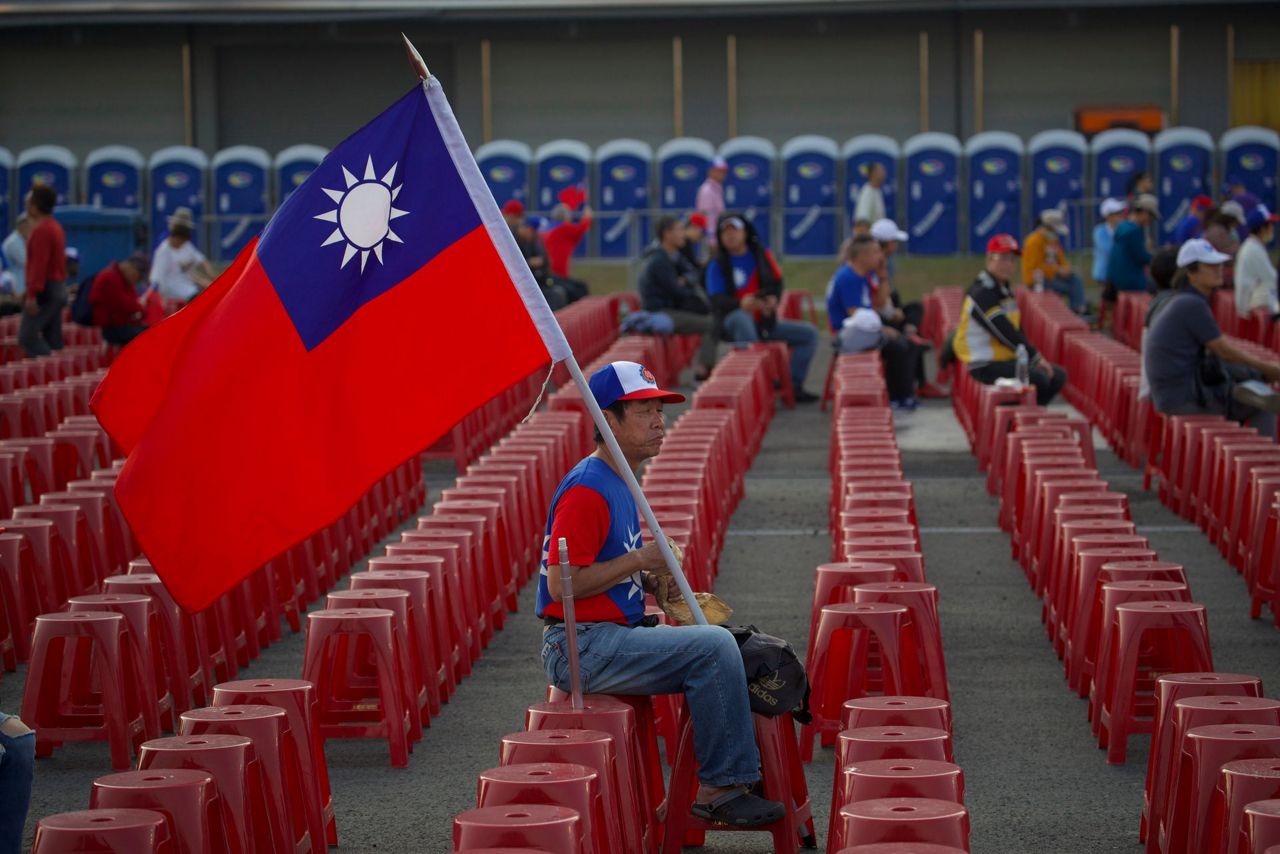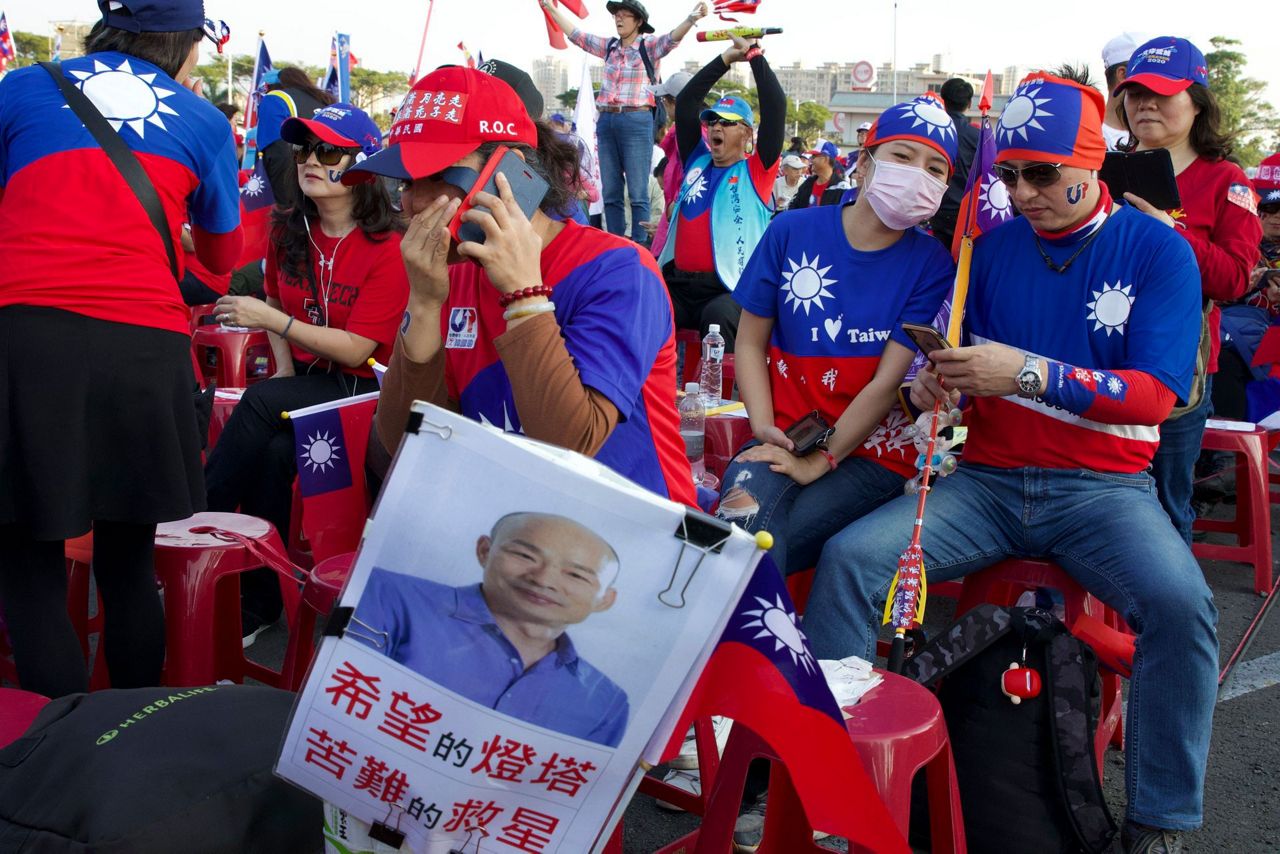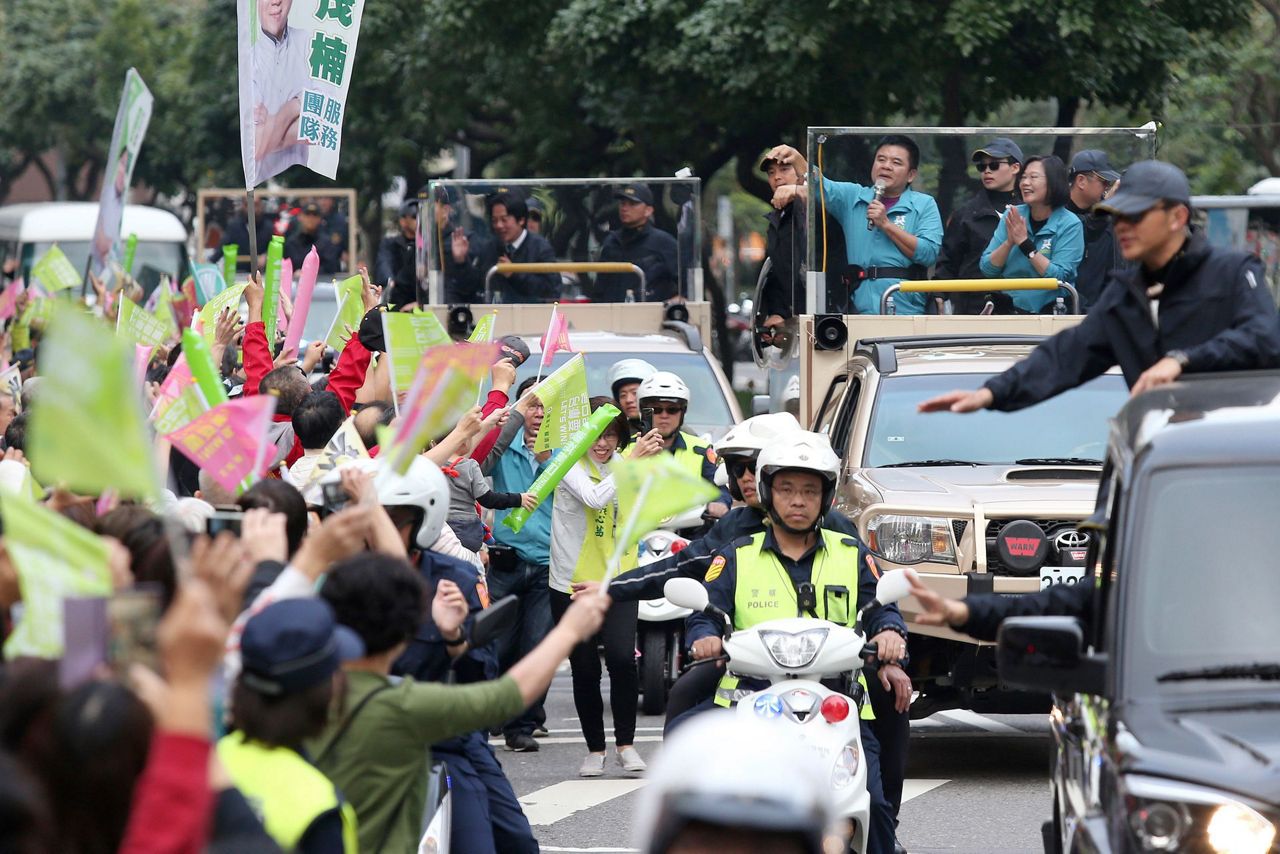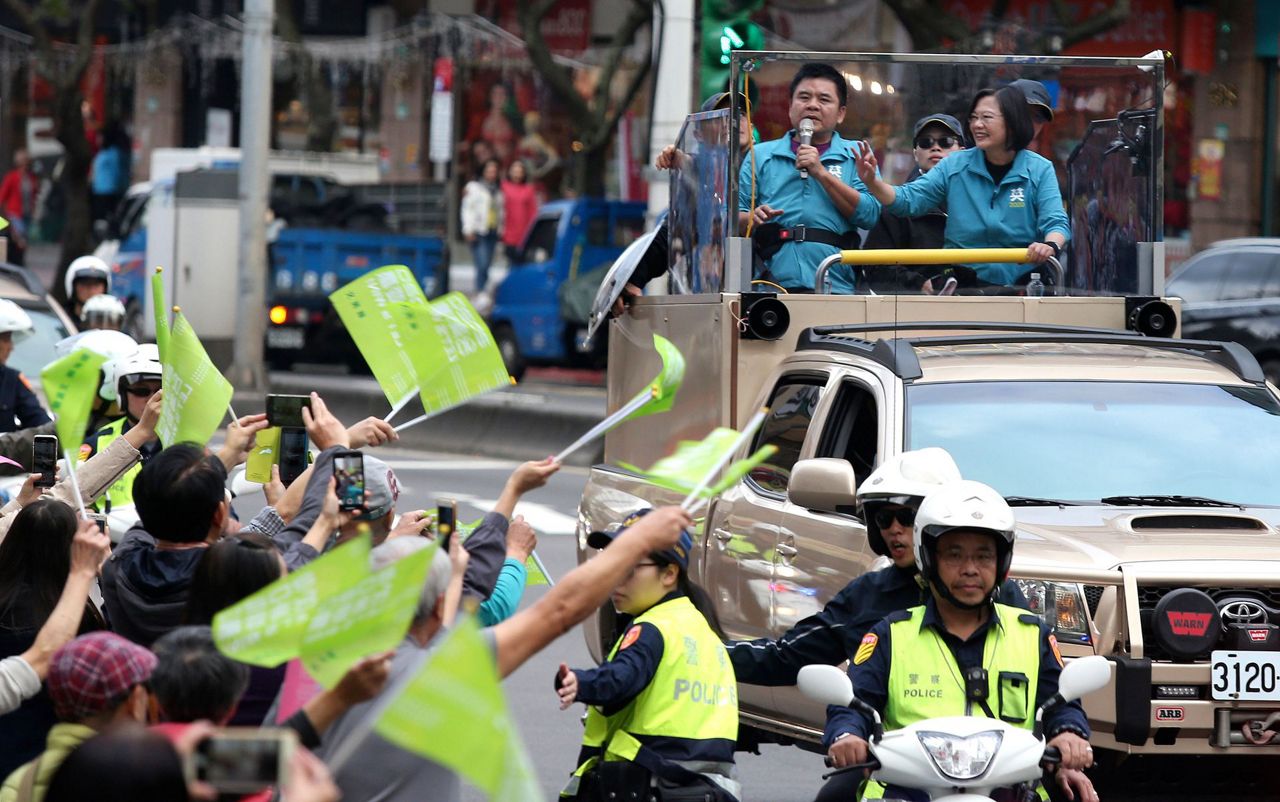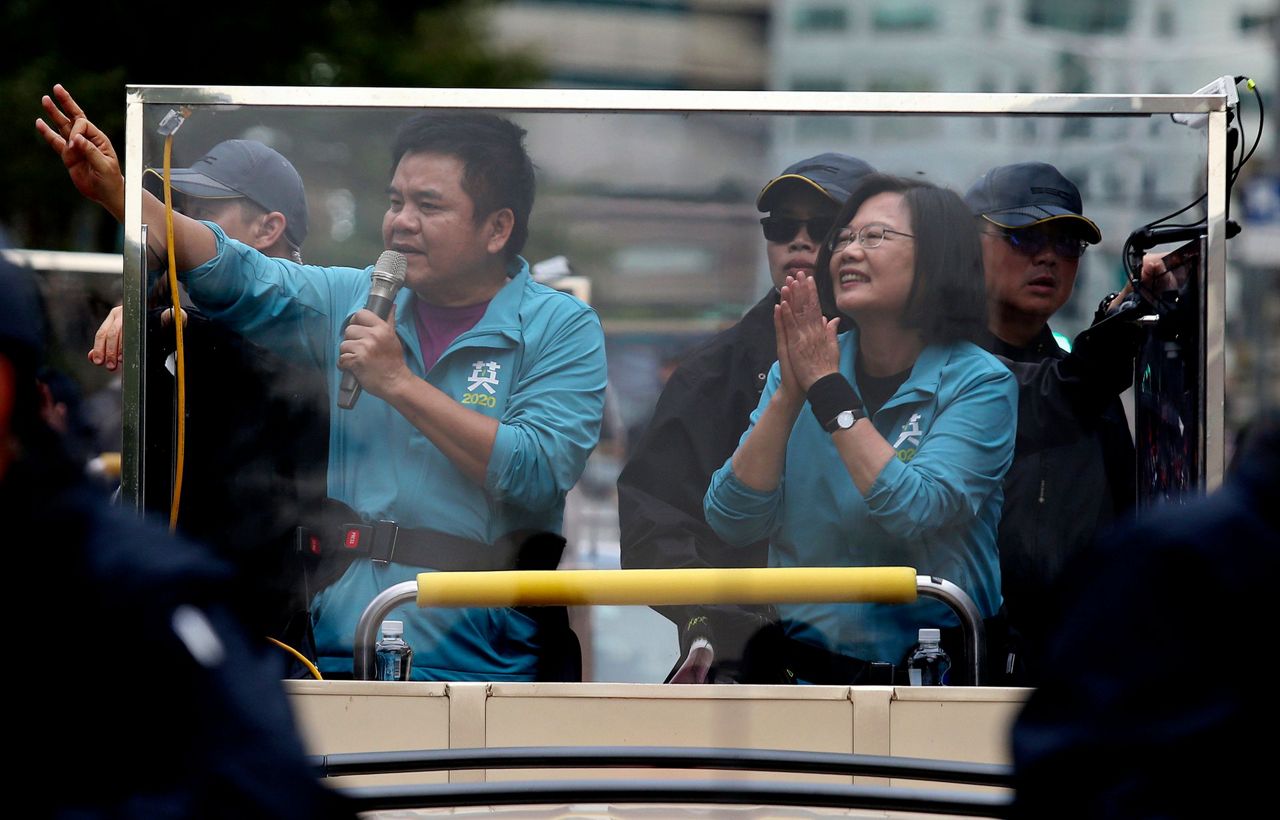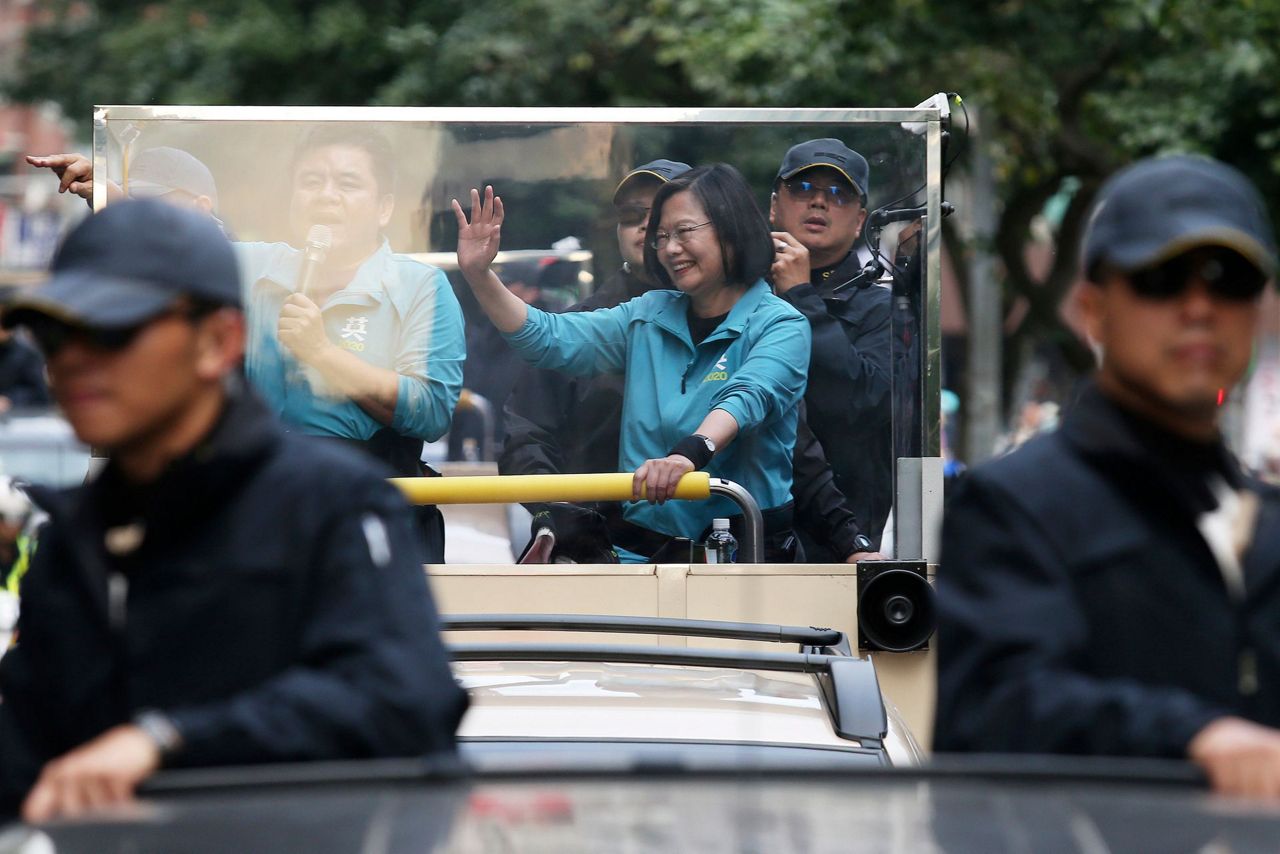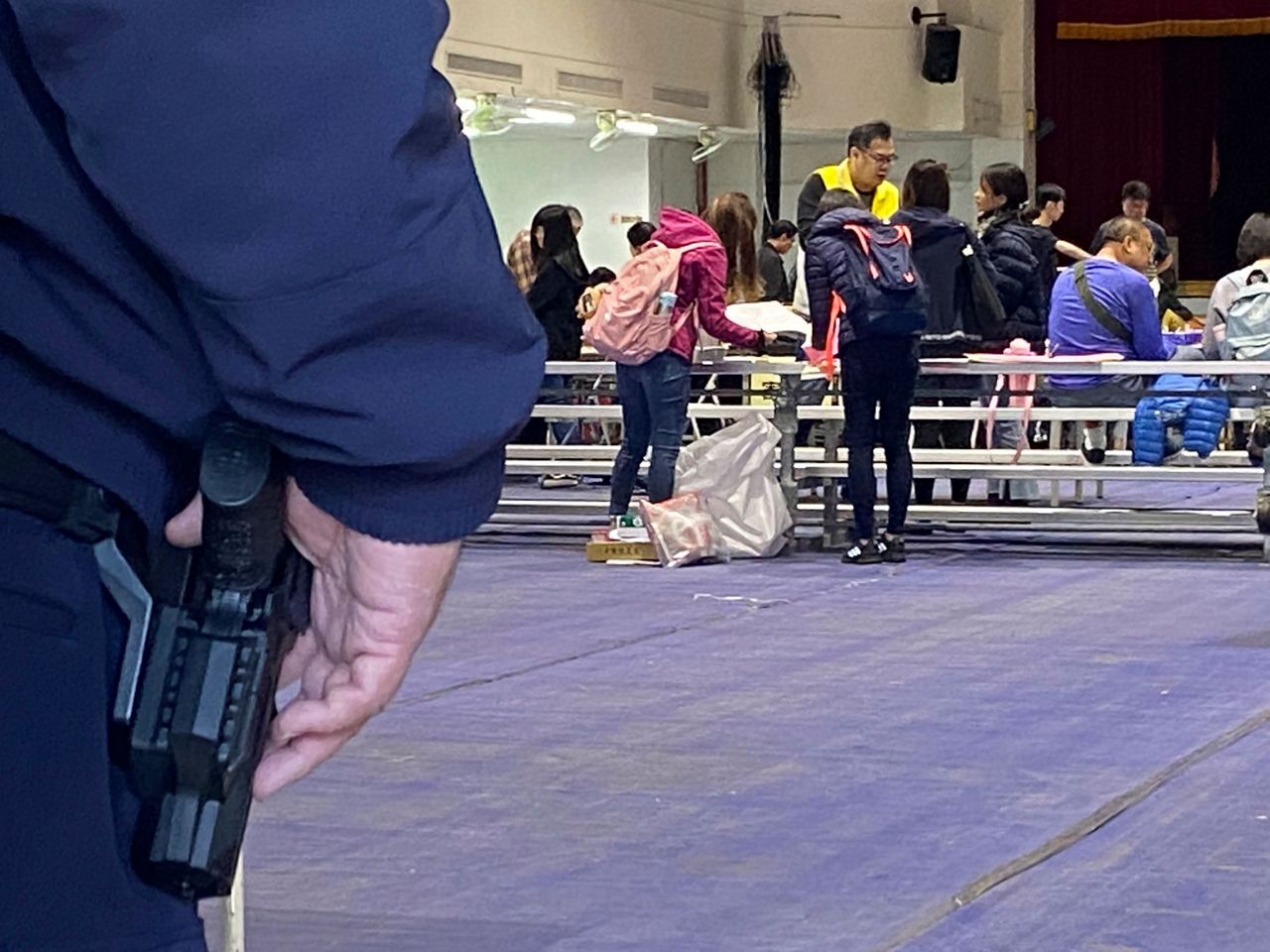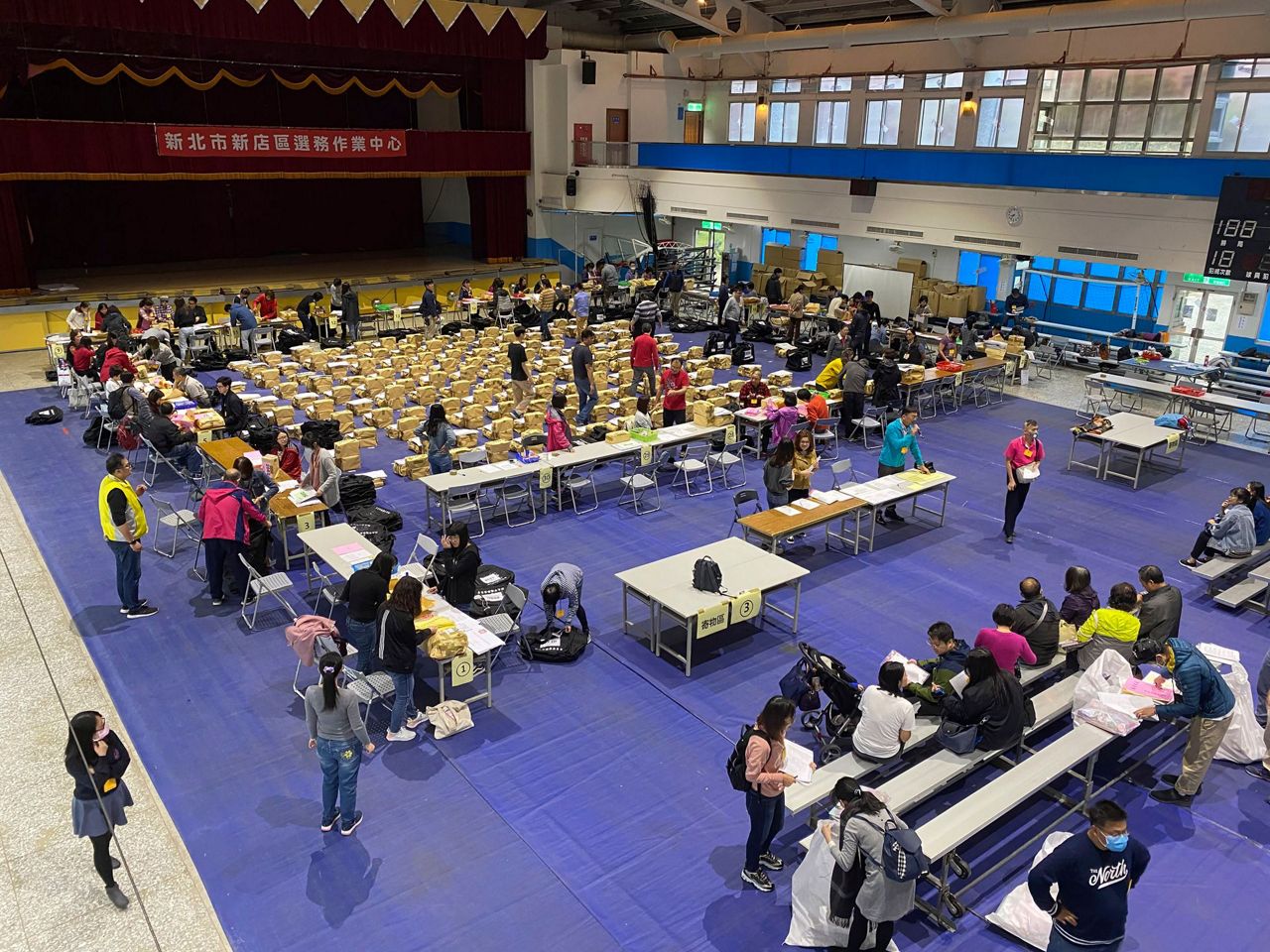TAIPEI, Taiwan (AP) — T aiwan's President Tsai Ing-wen urged her supporters to turn out at the polls in force as campaigning for national elections wrapped up Friday with last minute stumping and rousing rallies before this weekend's election.
“Every one of us must vote!” Tsai told a late night rally in downtown Taipei. "T his is for the sake of Taiwan's youth, for the sake of their future!"
Tsai, of the independence-leaning Democratic Progressive Party, was leading by a comfortable margin in most polls and was expected to triumph Saturday over her Nationalist Party rival, Han Kuo-yu, and James Soong, of the smaller People First Party.
The Nationalists, however, were hoping to erode the DPP's 68-seat majority in the 113-member legislature, where Nationalists hold 35 seats. Minor parties and independents hold the rest of the seats.
Taiwan elections are lively events that generally revolve around economic, public welfare and social justice issues, though China's threat to annex the self-governing island by force always looms large in the background.
After losing badly in local elections 14 months ago, Tsai's party has gotten a boost from hostile words and actions from Beijing. Months of sometimes violent anti-government protests in Hong Kong have helped convince many in Taiwan that Beijing's “one country, two systems" formula for governing that city is untenable.
Still it is likely that further deadlock and heightened pressure from China will result if Tsai wins a second, four-year term.
At Tsai's rally, her backers waved pink and green flags and chanted, “2020, let's win!" and ”Ing must triumph!"
Tsai's campaign has focused on the need to protect the island's thriving democracy, which she says should be a model for Hong Kong, rather than the other way around.
“The young people of Hong Kong are watching you!" Tsai said. “Democracy must win, freedom must win ... Taiwan must win!"
Tsai's cause has been helped, by a fortuitous rebound in Taiwan's high-tech economy. Stock prices have remained robust and wages have risen slightly, partly thanks to Taiwanese exporters relocating from China to cut costs and avoid the bruising effects of the U.S.-China trade war.
In the southern port city of Kaohsiung on Friday, thousands of fans of her rival Han, who is the city's mayor, waved red and blue Taiwan flags, blew horns and chanted their support. Soong of the smaller People First Party, also planned a rally.
Han has slumped in the polls following a series of gaffes and allegations of shady financial dealings. He has clung to a pro-China policy despite widespread distrust of the mainland and the backlash against Beijing's handling of the Hong Kong protests.
Beijing has taken an especially hard-line against Tsai since her 2016 inauguration, infuriated by her refusal to endorse its claim that Taiwan and the mainland belong to a single China.
Beijing cut off all formal ties with her government, restricted visits by Chinese tourists, excluded Taiwan's representatives from international gatherings and peeled away more of the island's dwindling diplomatic allies, leaving it with just 15.
Stepping up its threats, Beijing has in recent months held military exercises across the Taiwan Strait, sailed both of its aircraft carriers through the waterway that divides Taiwan from the mainland and flown air patrols around the island.
However, in an apparent effort to avoid antagonizing voters, Chinese leader Xi Jinping didn't renew the threat of using force against Taiwan during his annual New Year's Eve address, even though he reiterated China's firm opposition to Taiwan's formal independence. Chinese state media have been notably silent on the election.
Analysts say the low-key approach masks a more subtle campaign to back Han and Nationalist candidates for the legislature through media manipulation and social media campaigns.
Seeking to scupper such attempts, the legislature last month passed an anti-infiltration bill laying out fines and prison sentences for those seeking to manipulate Taiwan's political system on behalf of China or other foreign powers.
In comments to the media on Thursday, Taiwan's Foreign Minister Joseph Wu said Tsai's government doesn't plan to rock the boat with a formal declaration of independence.
“Maintaining the status quo is in the best interest of everyone concerned. We will not provoke any conflict with China, but we are absolutely determined to defend Taiwan's democracy,” Wu said.
___
Wu contributed from Kaohsiung, Taiwan. Associated Press journalists Ken Moritsugu, Johnson Lai, Tassanee Vejpongsa, Emily Wang and Yves Dam Van also contributed.
Copyright 2020 The Associated Press. All rights reserved. This material may not be published, broadcast, rewritten or redistributed.



